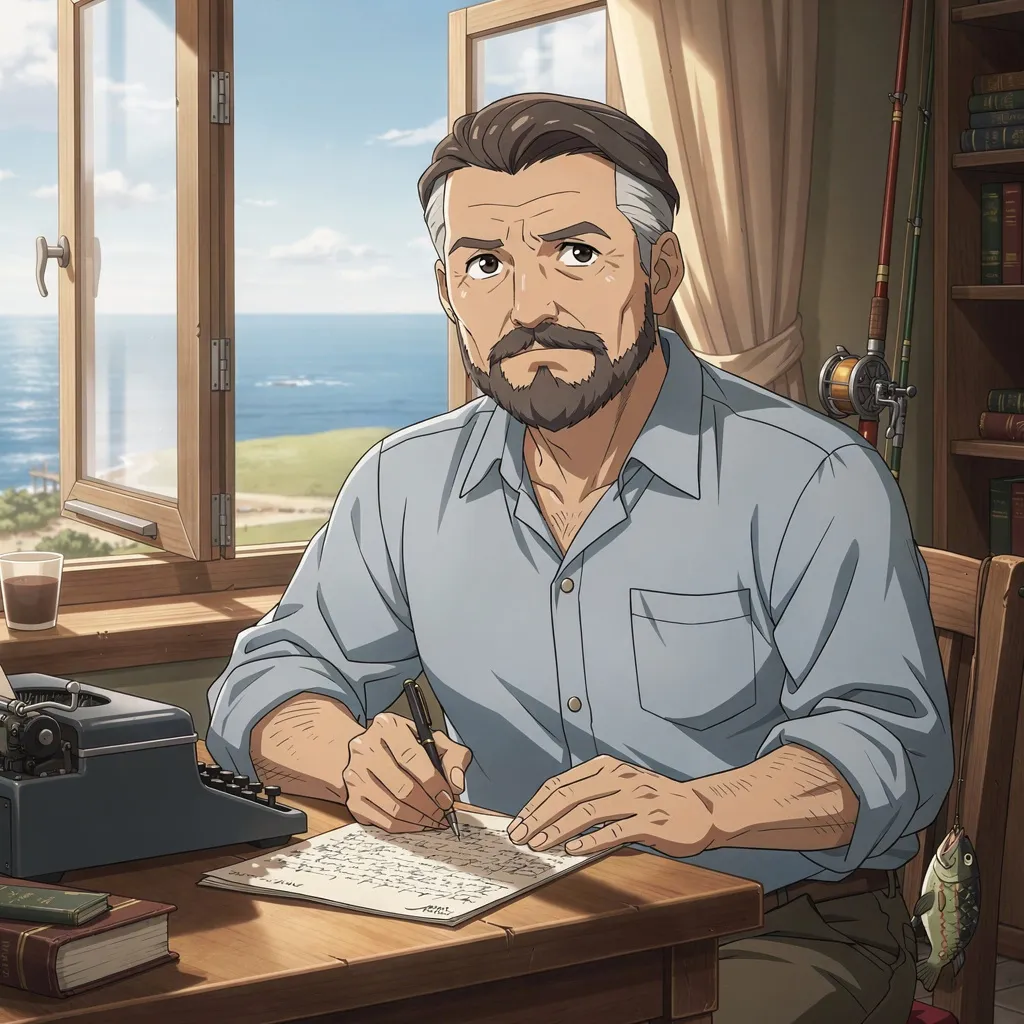
Ernest Hemingway
1899-1961
Being a famous American writer known for clear, simple storytelling
Early Life
Ernest Hemingway was born on July 21, 1899, in Oak Park, Illinois. As a child, he loved reading, writing, and spending time outdoors with his family.
He enjoyed fishing, camping, and exploring nature, which later became important ideas in his stories. Ernest learned early that careful observation helps make great writing.
Becoming a Writer
After finishing high school, Ernest worked as a newspaper reporter. This job taught him how to write in a clear and simple way, using only the most important words.
He believed that good writing should be easy to understand but full of meaning. This style later made him one of the most well-known writers in the world.
Adventures and Inspiration
Ernest traveled to many places, including Europe, Africa, and Cuba. He met new people and learned about different cultures wherever he went.
These experiences gave him ideas for stories about courage, friendship, and facing challenges. He often wrote about ordinary people doing their best in difficult situations.
Famous Books
Ernest Hemingway wrote many popular books. Some of his best-known works include *The Old Man and the Sea*, *A Farewell to Arms*, and *For Whom the Bell Tolls*.
*The Old Man and the Sea* is about an old fisherman who shows great patience and strength. This story is often read by students because of its powerful message about never giving up.
Awards and Achievements
In 1954, Ernest Hemingway won the Nobel Prize in Literature. This is one of the highest honors a writer can receive.
The prize celebrated his strong storytelling style and the lasting impact of his books. His writing helped change how stories were told around the world.
Legacy
Ernest Hemingway passed away in 1961, but his stories are still read today. Many writers study his work to learn how to write clearly and honestly.
His life reminds us that curiosity, practice, and paying attention to the world can turn experiences into powerful stories.
🎉 Fun Facts
Ernest Hemingway loved cats, and many had extra toes!
He preferred writing early in the morning when it was quiet.
He often stood up while writing at a tall desk.
He enjoyed fishing and spent many years living near the ocean.